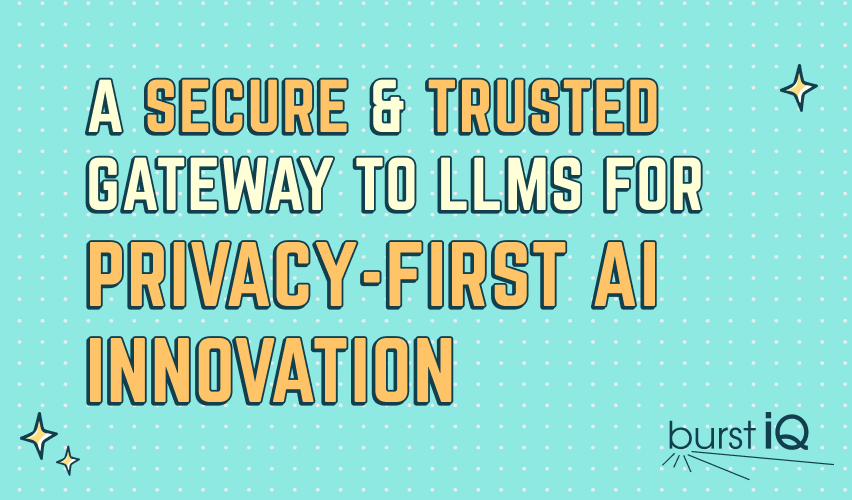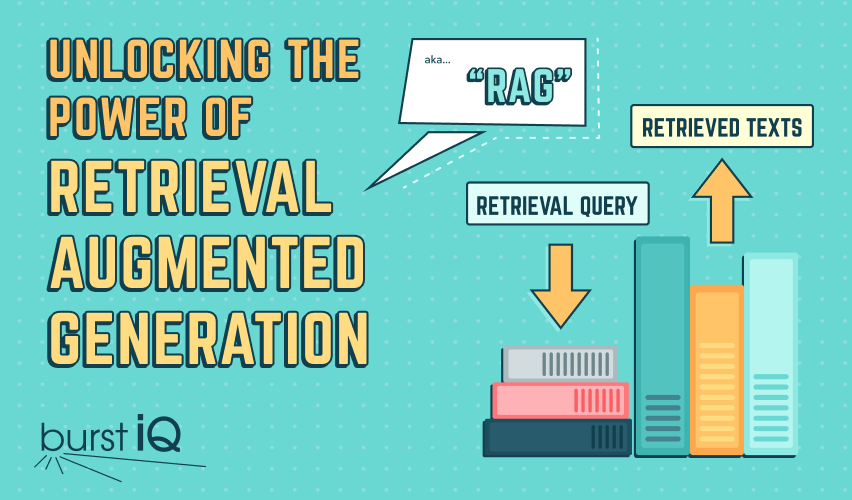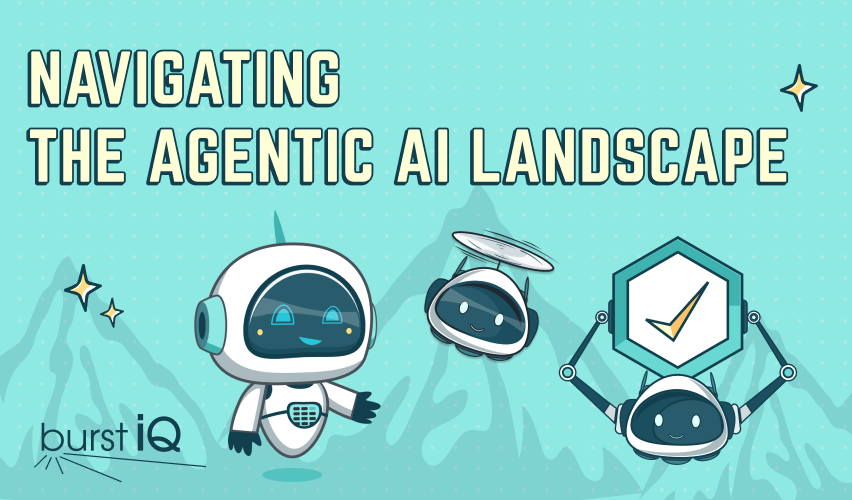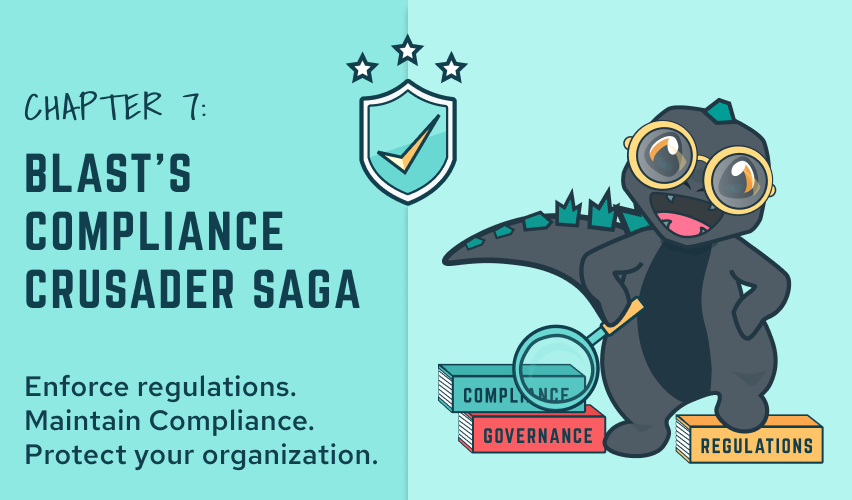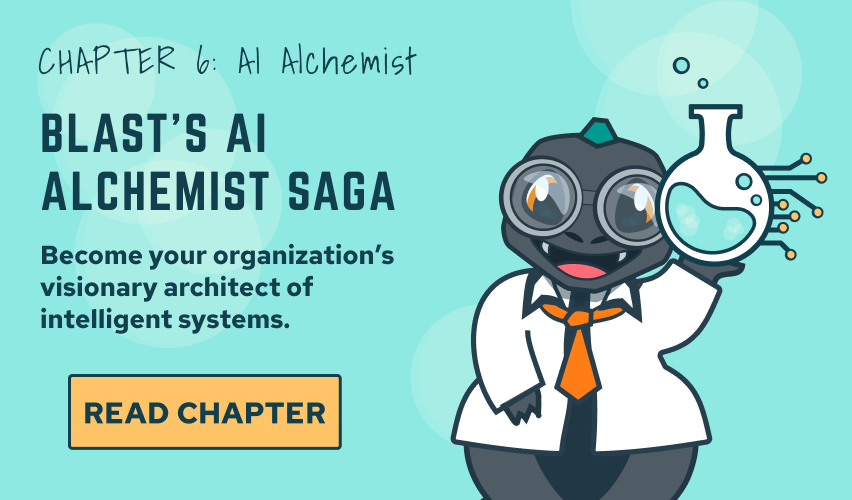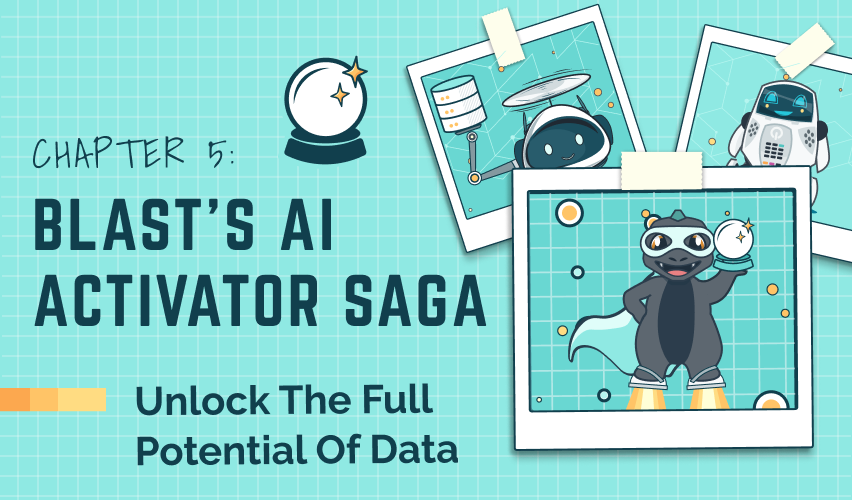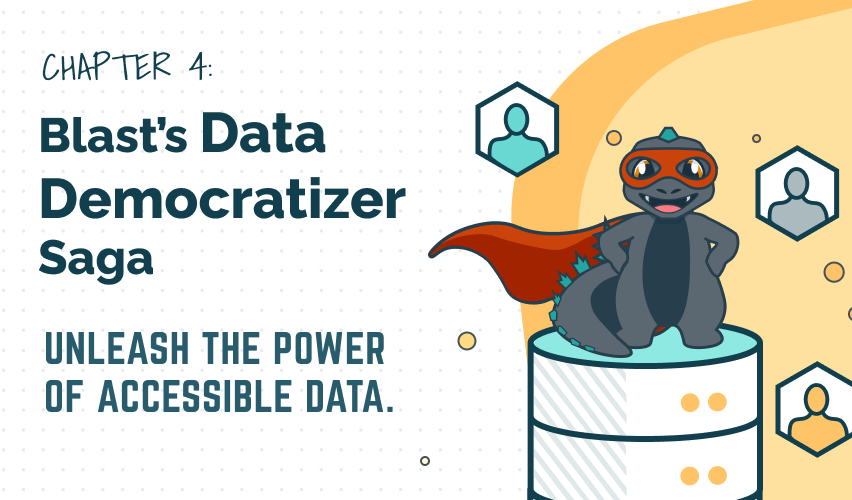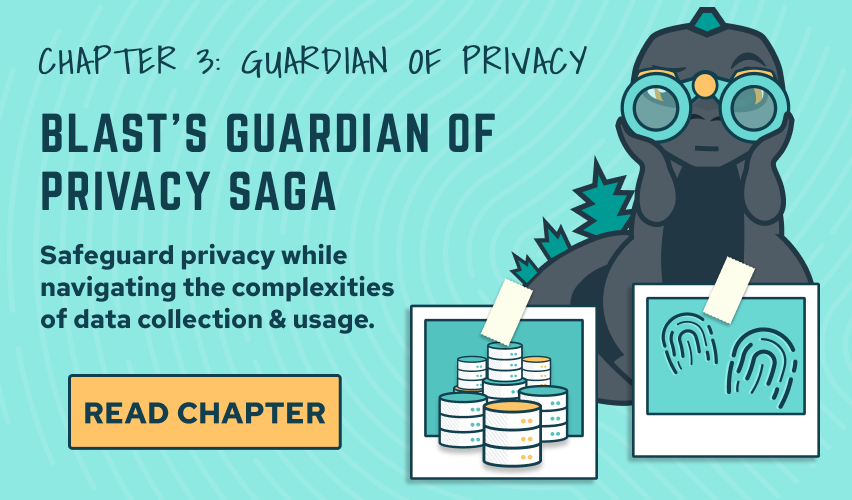Knowledge Burst Blog Series
How can BurstIQ help you build your trust and improve patient satisfaction by protecting human health data?
By Frank Ricotta, CEO & Founder, BurstIQ
Data is one of the most valuable resources in the world today. Unfortunately, this valuable resource is often abused by companies who take advantage of an individual’s right to data privacy — or their data dignity. It’s time to flip the paradigm from centralization to decentralization and put data control in the hands of the individuals who generate the data and deliver more value due to their sharing personal data. After all, it’s not just good ethics—it’s good business.
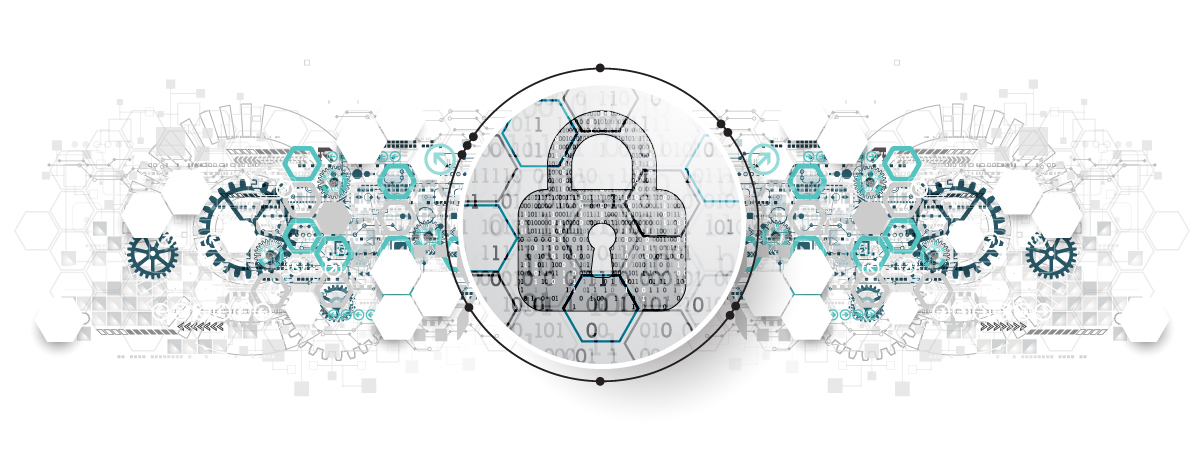
The data problem and a lack of trust
People are tired of their personal information being put at risk due to data breaches or using it without their knowledge for corporate gain. This increased concern for security and privacy comes at a cost. Not only is it costly to take care of personal data, but failing to do so comes with steep penalties. Worse yet, failing to protect customer data affects customer satisfaction and tarnishes your reputation.
According to a recent McKinsey survey, “the great majority of respondents—87 percent—said they would not do business with a company if they had concerns about its security practices. Seventy-one percent said they would stop doing business with a company if it gave away sensitive data without permission.”
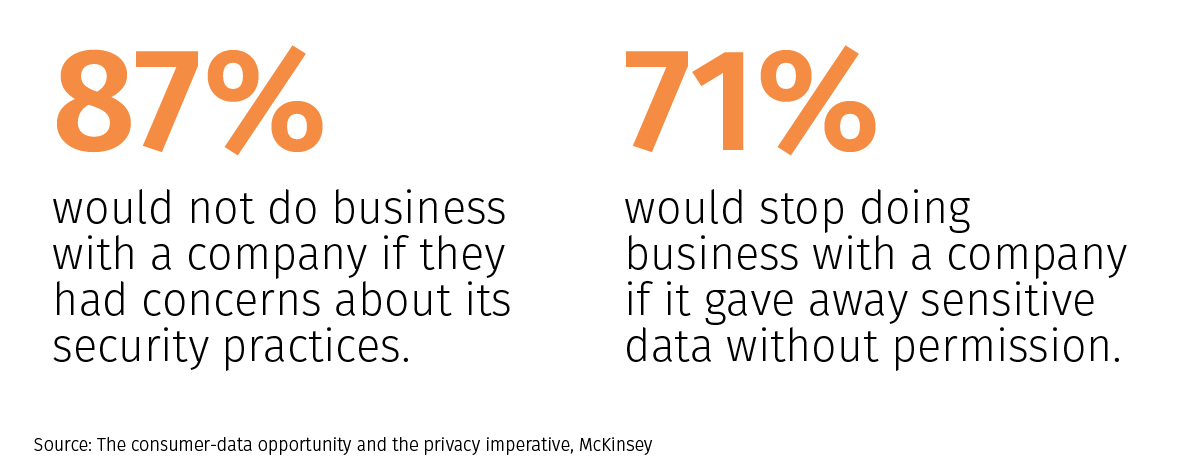
You have to admit, it’s a little creepy when you search for running shoes, and suddenly your Facebook feed is filled with ads about running shoes. Or heaven forbid, you click on an ad, and you are profiled and targeted for that product and similar products. Sometimes it feels like all you have to do is mention a product, and suddenly see ads for it online. It feels invasive and like you have no control over how your data is used.
But, if mishandling data can erode a consumer’s trust in an organization, the opposite is true as well. Protecting data and respecting an individual’s right to data privacy can give your organization a clear competitive advantage. It’s time to focus on offering and preserving data dignity.

The data opportunity: build your trust
We have a tremendous opportunity in healthcare and life sciences. Patients generate a lot of data. Encounter data. Claim data. Device data. Sensor data. Just about every activity a person does generates data.
All this data is essential for running our businesses, decision making, connecting with patients, and making discoveries that improve human health. But just because this data exists doesn’t mean it’s ours for the taking. Our success and reputations hinge on a few principles: we must connect with both the data and the person behind it in a mutually beneficial way, where individual privacy and ownership rights are respected, incentives are aligned, and trust is inherent.
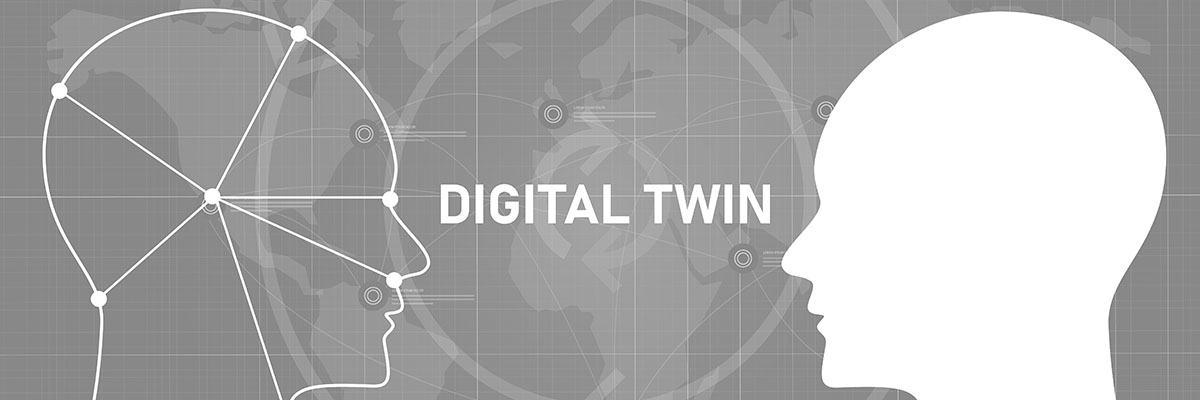
Digital twin: more human than digital?
Every individual interacting in healthcare and technology also has a digital twin. Digital twins are the digital copy of humans in a virtual world. The patient exists in real life and a digital space — or mirror worlds.
So, if a person tracks their weight and diet on a digital app, for example, their digital twin is representative of all that data. If they have diabetes and use an app to track their blood glucose levels, A1C, insulin, and carb intake, the data expressed by their digital twin captures how their condition affects them personally. If they have an asthma attack on a rainy day, you guessed it, their virtual representation also “has” an asthma attack, capturing data about what triggers an attack.
This digital DNA is game-changing for healthcare, but only if we use it ethically. I think it’s helpful for this discussion for you to think of a digital twin as if it were a person. Extend the same human rights you would give to the physical person to their digital selves.
This digital DNA is game-changing for healthcare, but only if we use it ethically. I think it’s helpful for this discussion for you to think of a digital twin as if it were a person. Extend the same human rights you would give to the physical person to their digital selves.
In order for health and life sciences organizations to build trust and foster loyalty, they must use these digital twins and apply digital twin technologies in the most conscientious way possible. It’s our job to deliver value in return for access to this human insight goldmine.
So, how do we connect to this data in a way that builds trust? The answer lies in decentralized networks, consent, and governance, and delivering more value.

Patient-controlled data sharing
Healthmanagement.org says “a decentralized network facilitates private data transformation from a centralized database to the individual end-user or owner of the data, the patient.” In other words, moving from a centralized framework where the enterprise owns patient data to a decentralized framework where the patient is in control of how their data is collected, used, and shared.
In order for health and life sciences organizations to build trust and foster loyalty, they must use these digital twins and apply digital twin technologies in the most conscientious way possible. It’s our job to deliver value in return for access to this human insight goldmine.
So, how do we connect to this data in a way that builds trust? The answer lies in decentralized networks, consent, and governance, and delivering more value.
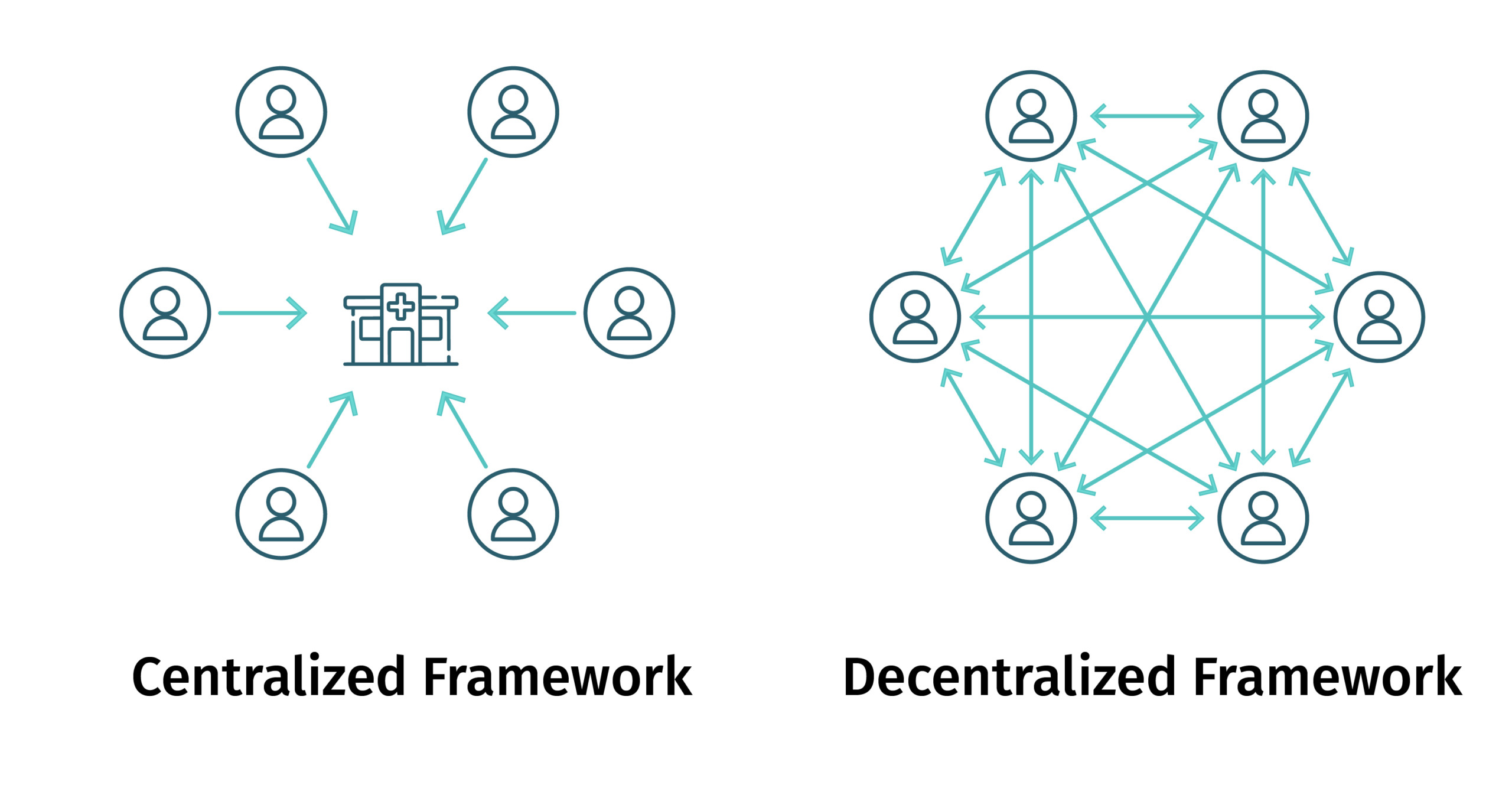
So how do you make this decentralization happen? That’s where blockchain technologies come in.

Blockchain: the engine behind data dignity
The healthcare industry has been slow to adopt blockchain technologies, but that tide is turning. A recent HIStalk article states, “Blockchain technology solves many of the challenges with digital asset management as we’ve seen with cryptocurrency. By viewing patient data as a digital asset, we can shift our view from the technology, processes, and workflows used to manage patient data and begin focusing on how blockchain can become part of the healthcare ecosystem.”
LifeGraph® from BurstIQ is powered by blockchain services. LifeGraph turns patient data into digital assets that have trust and context built-in. Consent and governance of these digital assets are managed through smart consent contracts to ensure the patient is always in control of their data and how it can be used — a.k.a data dignity.
If a patient wants the data about their particular type of cancer released to a study to help researchers discover new therapies or treatment modalities, that’s in their court. If they want that information to remain private, that is their choice as well. Data dignity means you respect an individual’s right to how their data can be used and how they can benefit from sharing it.
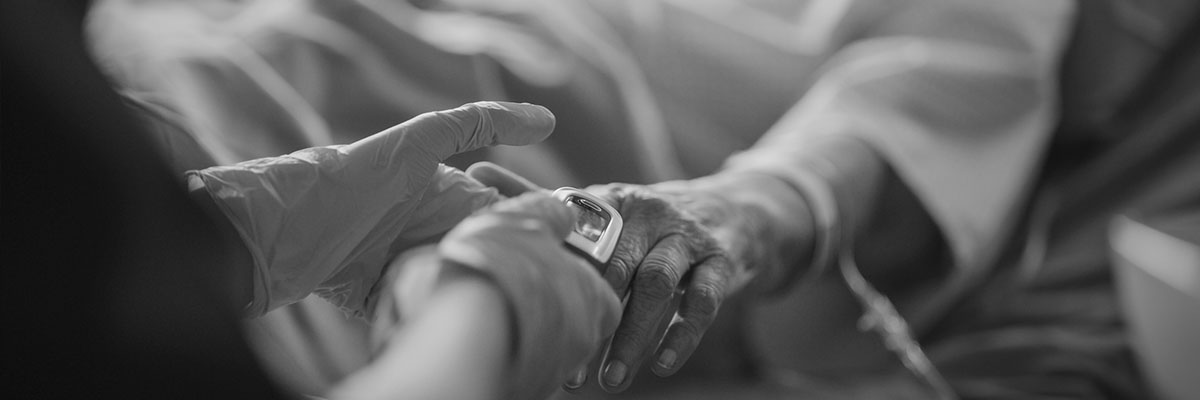
Data dignity also means you have to deliver value to patients
In order for healthcare and life sciences organizations to deliver value to patients, you need to do more than just protect data privacy. You also need to think about how you can use data to improve the patient experience. Care should be more accessible. Processes should be more efficient and easier to navigate. Treatments should be more precise. Outreach should be more targeted. Communication should be more relevant.
To me, this is why we all chose to be in healthcare. We want to make a positive impact on the lives we serve. Sure, there is a business aspect to healthcare, but ultimately we are all focused on better care and better outcomes. When you focus on how you can deliver more value to your patients, it can take the stress off other parts of the healthcare system.
According to an AHRQ report on patient experience, “Efforts to improve patient experience also result in greater employee satisfaction, reducing turnover. Improving the experience of patients and families requires improving work processes and systems that enable clinicians and staff to provide more effective care. A focused endeavor to improve patient experience at one hospital resulted in a 4.7 percent reduction in employee turnover.”
The responsibility is ours
I’d argue there is no other industry that needs to respect an individual’s data dignity more than healthcare. People are often the most vulnerable when they address their health concerns and issues. When they share their personal health information with us, we have an obligation to use it for good.
This mentality will change the dynamic of the relationships we have with patients. At BurstIQ, we want to help you redefine trust and make it central to how you conduct business. Protecting data dignity is a huge component of that. Use data for good so you can establish trust and long-term relationships. Build your trust and the profits will come.
I’d love to hear your thoughts on this topic. Let’s connect on LinkedIn or reach out via email.
About BurstIQ
BurstIQ fuels trust-first digital strategies with human data. LifeGraphs® take the complexity out of managing sensitive human data, freeing organizations to build trust through hyper-personalized health, work, and life digital experiences. In an era of data abundance, LifeGraphs promote trust between organizations and the individuals providing data through blockchain-powered governance and consent. The LifeGraph Network provides a single source of truth and an intelligent ecosystem, helping businesses gain a deep understanding of the people they serve. Armed with granular insights, they can deliver more value in digital experiences and make an increasingly digital world more human.
